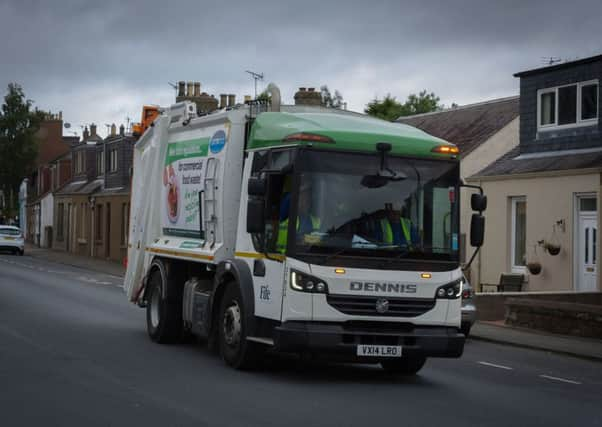Jeff Salway: Come clean on council tax


The first reason given by my local SNP candidate as to why I should vote for her is the council tax freeze, which she claims has been disproportionately beneficial TO those on low incomes.
If the council tax freeze is being used by the SNP as a campaign tool, one wonders how seriously the Scottish Government takes the growing opposition to the policy.
Advertisement
Hide AdAdvertisement
Hide AdLast Wednesday, Naomi Eisenstadt, an independent adviser to the Scottish government on poverty and inequality, suggested in a new report that Holyrood consider ending the freeze. Doing so would “make a contribution to protecting public services that are particularly supportive of families in poverty”, she said.
The debate was simmering away nicely even before Moray Council revealed it was considering ending the freeze. It will decide next month whether to increase council tax bills by 18 per cent, the amount it views as necessary to protect frontline services and offset the loss of the compensation paid by the Scottish Government.
It’s unlikely to go ahead with the increase, but its move has encouraged other councils to become more vocal. Among them are Falkirk and Fife, the latter suggesting a 7.51 per cent council tax hike. Councils that until now have accepted the funding agreement have been prodded into action by a £500m cut in the local government budget for 2016/17.
Unite general secretary Len McCluskey chipped in last week, telling the Scottish government that allowing increases to council tax would “lift the cloud of austerity” from Scotland. Another union, Unison, has previously claimed that by 2020 the freeze will have contributed to the loss of more than 100,000 public sector jobs in Scotland.
The freeze has been relatively popular, until now. But people understand the link between the policy and the damaging to vital public services. The scale of the austerity forced on councils by the freeze means those apparently benefiting are in reality the hardest hit.
A recent report by Close the Gap, a gender equality campaign, said cuts to public services affect women in particular as their “disproportionate caring responsibility for children, disabled people, older people and sick people” means they rely more on those services.
The SNP likes to present itself as offering an alternative to Westminster austerity. That would be welcome, if it were true. Instead the council tax freeze merely exacerbates the effects of UK-wide spending cuts.
We’ve reached a tipping point where an overhaul is inevitable, and soon. We now need more from politicians on how this will be achieved.
Advertisement
Hide AdAdvertisement
Hide AdThe cross-party Commission on Local Tax Reform last month proposed alternatives including a tax based on land value. Its survey found widespread support for reform, with two-thirds of people wanting council tax replaced with a system based on either income or local needs.
Voters will want to hear more from the various parties over the coming months on the alternatives they prefer. The debate is heating up and it’s time for details, not for kicking the can even further down the road.